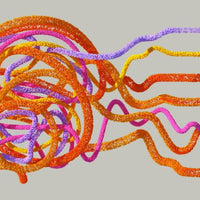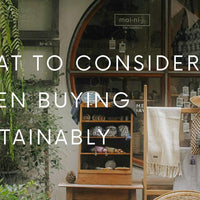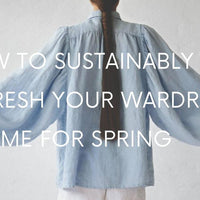In today’s world, the fashion industry faces a growing challenge: balancing style with sustainability.
As more people become aware of the environmental and ethical costs of fast fashion, many are turning to slow fashion as a way to reduce their impact.
What is Fast Fashion?
Fast fashion is the quick production of trendy, mass-produced clothing sold at low prices. This approach encourages constant consumption, as brands rapidly push new styles to keep up with ever-changing trends.
The environmental toll of fast fashion is significant. The production process involves large amounts of water, energy, and toxic chemicals, while synthetic materials like polyester release microplastics into oceans.
Moreover, fast fashion often relies on exploitative labor practices. Workers in developing countries are underpaid and forced to work in poor conditions, contributing to the overall ethical concerns surrounding the industry.
What is Slow Fashion?
Slow fashion, in contrast, emphasizes quality, sustainability, and ethical production practices. This approach encourages consumers to buy fewer, higher-quality items that are designed to last, helping reduce waste over time.
Slow fashion brands typically use organic, recycled, or responsibly sourced materials and prioritize fair wages for workers. For example, beautifully crafted wooden rings from RedwoodRings.com are made from sustainable materials, offering a timeless, eco-friendly alternative to traditional accessories.
By choosing slow fashion, you can reduce your carbon footprint. The focus is on longevity and versatility, ensuring that your wardrobe is filled with pieces that remain stylish year after year.
Why Quality Matters in Sustainable Shopping
Investing in high-quality items is essential for sustainable shopping. These pieces are designed to last longer, meaning you won't need to replace them as often, ultimately reducing your environmental impact.
Quality clothing and accessories also tend to use better materials and construction techniques. This durability ensures fewer resources are used in production, shipping, and disposal, leading to less waste and pollution over time.
Though slow fashion may seem more expensive upfront, it offers better value in the long run. High-quality garments and accessories can last for years, saving you money by reducing the need for frequent replacements.
The Role of Quality Accessories in Slow Fashion
Accessories play a crucial role in sustainable fashion choices. Well-crafted, durable accessories can enhance your wardrobe and align with eco-conscious values.
Wooden rings, for example, offer a stylish, sustainable alternative to traditional jewelry. Made from natural or reclaimed wood, these pieces are not only beautiful but also environmentally friendly.
Quality accessories can add a timeless touch to any outfit. By choosing sustainably made pieces, you are not only elevating your style but also supporting a more ethical fashion industry.
Tips for Transitioning to Slow Fashion
Transitioning from fast fashion to slow fashion doesn't have to be overwhelming. Start by purchasing fewer items and investing in high-quality, versatile pieces that you can wear for years.
Opt for timeless designs rather than following fleeting trends. This will help you build a wardrobe that stays relevant season after season, reducing the need for constant shopping.
Also, prioritize sustainable materials such as organic cotton, linen, or recycled fabrics. Look for brands that are transparent about their labor practices and prioritize ethical production.
Take care of the items you own to extend their lifespan. Proper washing, storage, and occasional repairs can help your clothes and accessories last much longer, contributing to a more sustainable lifestyle.
Conclusion
Slow fashion focuses on quality and sustainability, while fast fashion promotes overconsumption and environmental harm. By investing in fewer, high-quality items, you can make a significant impact on reducing waste and supporting ethical practices.
Start making conscious fashion choices today. Prioritize quality over quantity, and choose items that align with your values for a more sustainable and stylish future.
Image Credit: Pexels







0 comments